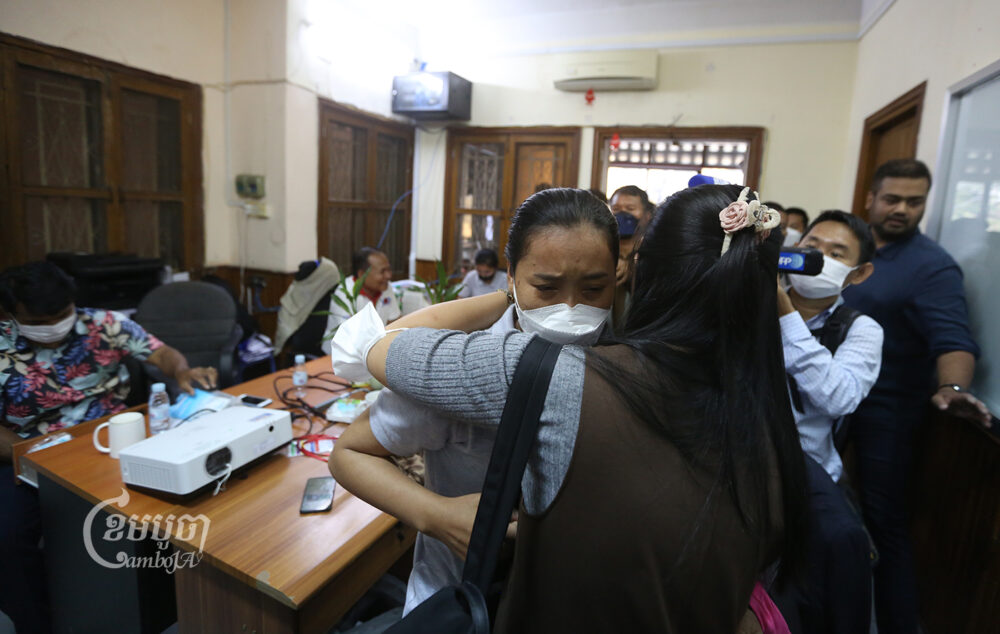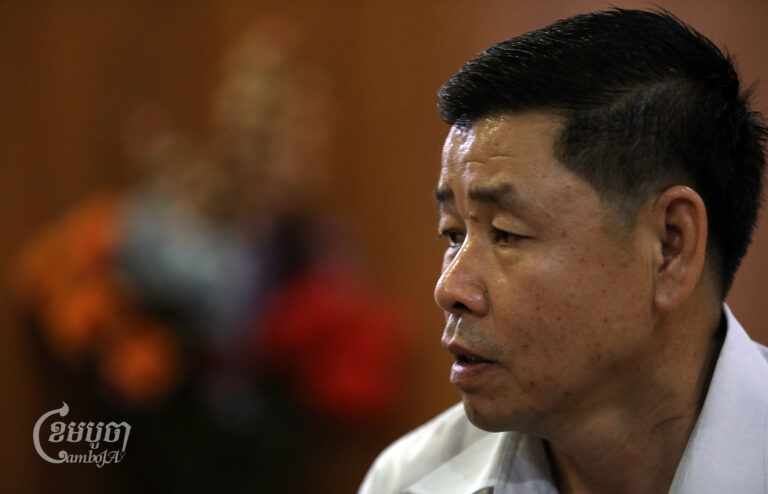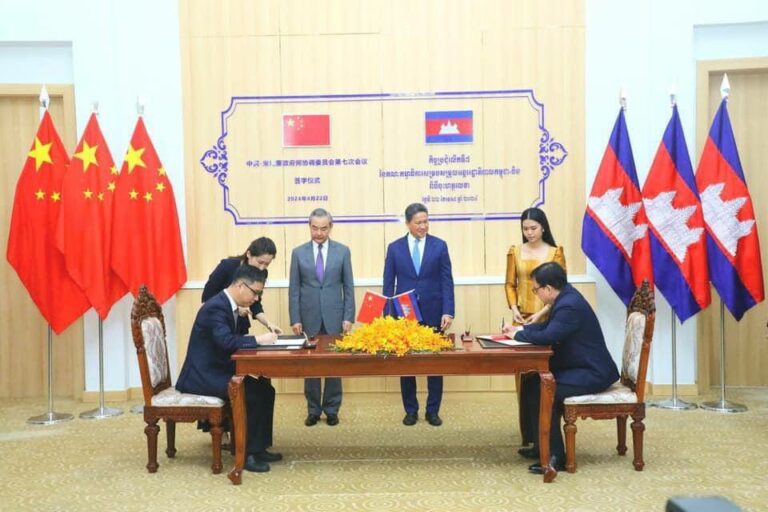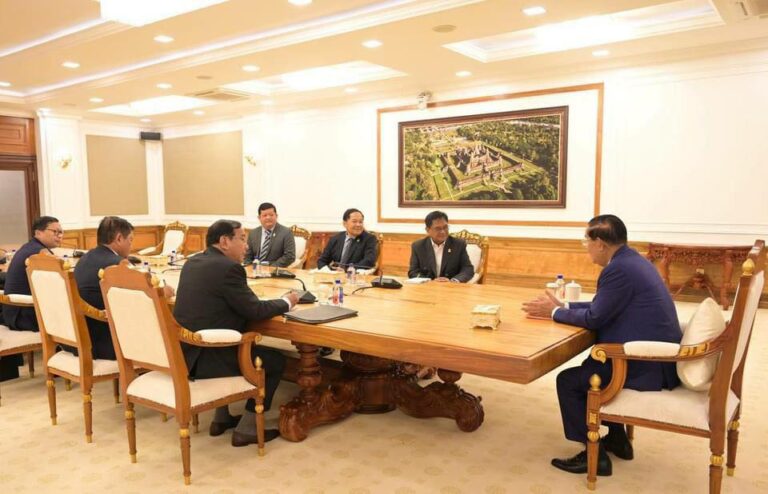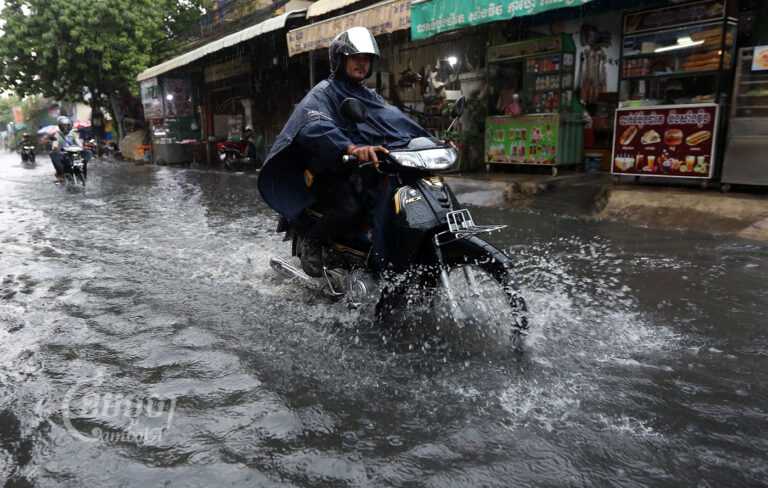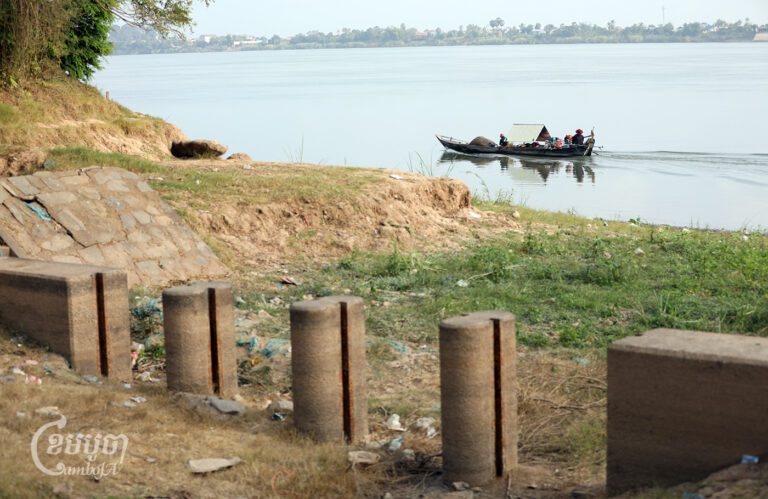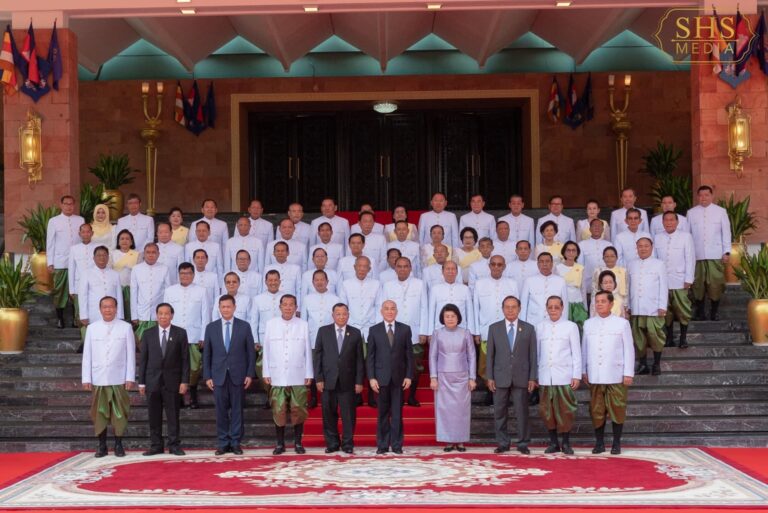Following the government-ordered shutdown of VOD last week, the outlet has been the subject of vulgar social media memes and its reporters continue to face personal attacks online and in government-aligned media.
Prime Minister Hun Sen has stated the VOD report which led him to revoke the outlet’s license last week was “fake news” and a political attack on the government.
“This is not the first time, and this time is too serious,” Hun Sen said Monday. “They intentionally attack both father [him] and son [Hun Manet] and destroy the government, you are trying to destroy me, it should be enough.”
Amidst the framing of VOD as fake news, Adhoc spokesperson Soeng Senkaruna said that there are few remaining media in Cambodia willing to report on negative issues. Freedom of press had been on the decline since the dissolution of the CNRP in 2017, he added.
“Now we see that the situation has gone backwards, which is worrying,” he said. “We do not want to see images of restrictions on the press and civil society in a democratic society, and this event has made journalists fearful of fulfilling their role to serve society and the people.”
PM defends sexual harassment of journalist
On Monday, Hun Sen rebuked a group of more than 40 civil society organizations after they released a joint-statement last week condemning the sexual harassment of a female VOD reporter on social media.
The letter was addressed to the Minister of Information, Minister of Women’s Affairs, Minister of Culture and Fine Arts, and the Minister of Post and Telecommunications, urging the ministries to take action against social media personality Pheng Vannak for verbally attacking a female reporter.
The letter stated that Pheng Vannak, who runs a self-titled social media news page, wielded misogynistic language against a female VOD reporter and demanded he apologize and attend gender sensitivity training. But the Prime Minister appeared to downplay Vannak’s comments.
“These NGOs were established only to oppose the government and not to do anything to protect women’s equality,” Hun Sen said during a February 20 speech to Phnom Penh university students. “When my sister [sister-in-law] died, she was insulted, my wife was insulted, my family was insulted, but you [NGOs] did not come out to defend, so next time don’t talk about double standards with me.”
Regarding the insults, Hun Sen was likely referring to statements made by exiled opposition figure Sam Rainsy, who mocked the death of the Prime Minister’s sister-in-law in early February.
“I am waiting to see if all civil society organizations are taking action to protect my family as well,” Hun Sen said, warning he could order investigations into the NGOs’ financing.
“If it is necessary to audit [the NGOs] to find out where the money came from, we have the right to do so and the Ministry of Interior or the Anti-Corruption Unit could investigate,” he added.
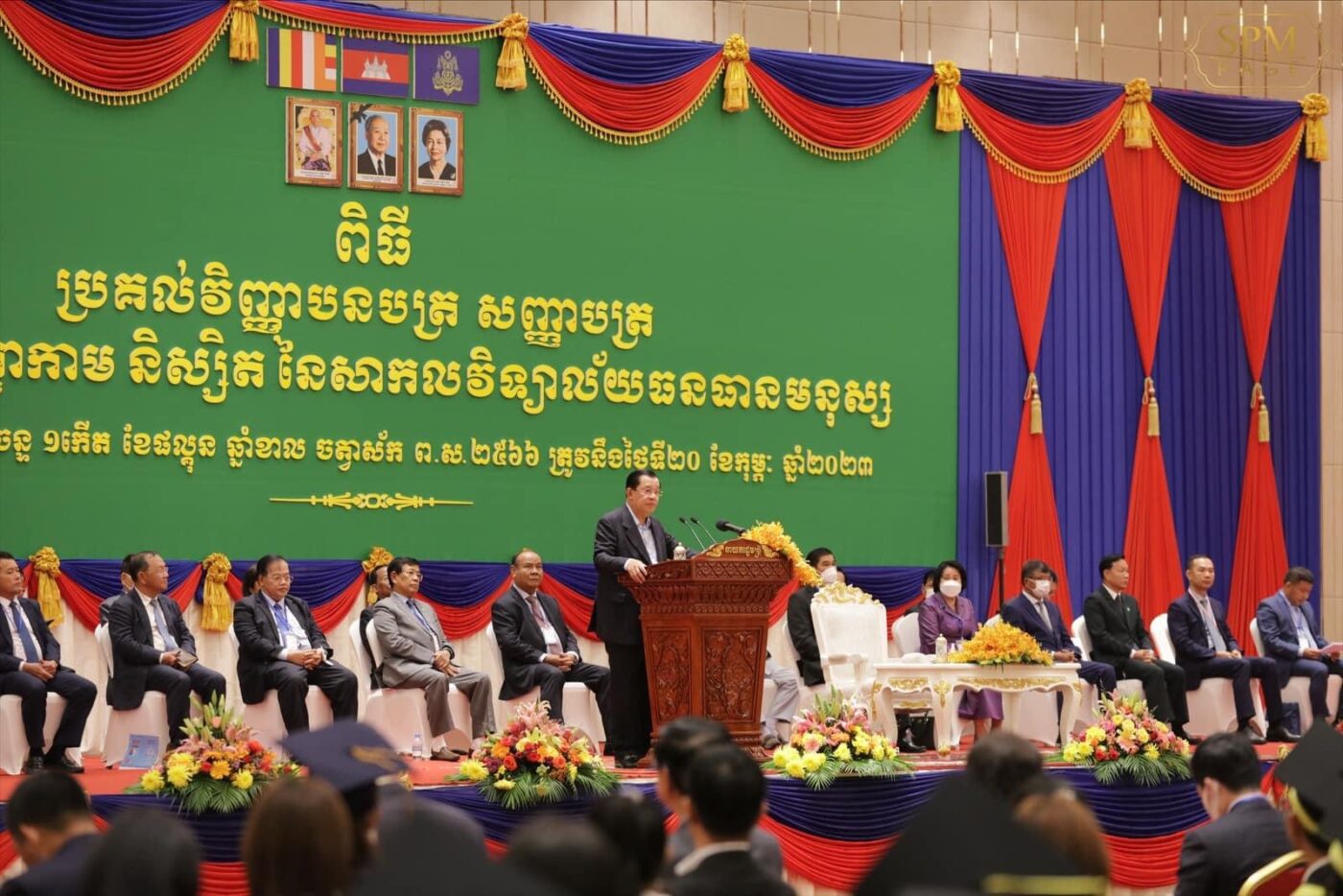
While no other ministry responded directly to the civil society statement as of Monday, the Ministry of Women’s affairs released a statement Monday which urged civil society organizations to remain neutral and not pursue political interests.
“We call on civil society organizations to adhere to professional ethics and display impartiality in the conduct of their work, avoiding the application of biased and double standards,” the statement read.
Chim Channeang, secretary general of the Cambodian NGO Committee on the Convention on the Elimination of All Forms of Discrimination Against Women, signed the statement. She said the aims of the organizations signing the statement were not political.
“The role of civil society organizations is that we work in line with the government, our job is to work together as a government partner, and our role is to monitor the government,” she said. “For political parties, we do not interfere.”
Channeang said civil society organizations often receive money from abroad because Cambodia is a developing country with limited resources. She noted some government ministries also receive funding from foreign institutions.
“It does not mean…doing daily activities to serve foreign interests or doing whatever the foreigner wants, we bring that money just to contribute to the government and it helps develop the country and benefit the poor or minority groups in our community,” she said.
She said that condemning the harassment of the female VOD journalist was not a political act but was intended to promote greater protection of women.
“We are not taking sides, but the fact is that the girl who reported the news was insulted, and it is such a serious threat to make,” Channeang said. “It destroys her reputation, especially it affects her mental health.”
Backlash against VOD reporters
While international media, foreign embassies and numerous Cambodians mourned and condemned the closure of VOD in a series of articles, editorials and social media posts, VOD staff came under attack on social media and in government-aligned news outlets.
The day VOD’s license was revoked on February ,13 a series of Twitter users — many appearing to be fake accounts — began posting identical cartoons and messages applauding VOD’s closure with the hashtag #VODshithead.
The Twitter accounts shared cartoons which portrayed VOD as a tool of foreign agents such as “foreign embassies” and “NGO[s]”.
In one cartoon branded with the vulgar hashtag, a figure resembling the American icon Uncle Sam, in a tophat with the VOD logo, has a thought bubble attached reading “You must adhere to the strategies I have established” while painting Cambodia with paint labeled “human right” and “democracy.”
A group of white journalists stands watching and one says “Each of us must follow our boss’s instructions regarding fake reports. Our boss gives us money and protects us.”
Few of the comments received more than 100 views, according to Twitter.
The attacks on VOD reporters extended to government-aligned media.
Following a BBC profile of prominent VOD reporter Mech Dara titled “Cambodia: ‘Every newsroom I worked in gets silenced’”, Dara’s former employer The Phnom Penh Post sought to undermine Dara’s credibility by negatively portraying his mental health..
In a February 17 editorial titled “The Post: “Shut down” and “silenced”?” The Post claimed they had not had the right to reply to BBC and disputed the characterization that Dara had left because the paper had changed ownership to a PR firm with close ties to the government in 2018.
But they also included a section titled “about Dara’s personality” where the unsigned editorial described Dara as a “coward”, “mentally impacted” with “prominent personality flaws.”
Dara declined to comment.
“All this probably seems childish to a global audience and is highly unlikely to negatively impact Dara’s glowing reputation abroad,” wrote J. Daniel Sims, Cambodia director for anti-trafficking NGO International Justice Mission, in a Twitter thread. “However, coordinated attacks like this carry serious weight locally and have the potential to dramatically alter public opinion about him.”
Sims noted that Dara had been one of the VOD reporters leading the publication’s sustained exposé into Cambodia’s human trafficking and scam industry.
“This is the most pernicious and dangerous form of propaganda as it effectively reduces the net political cost of any potential violence against him [Dara],” Sims added. “In a context like this one, the risks of such a horrifying outcome are anything but theoretical.”
Additional reporting by Jack Brook.
Correction: This article has been updated to reflect that the NGO Licadho did not sign the joint-statement addressed to four ministries regarding misogynistic comments by Pheng Vannak.


